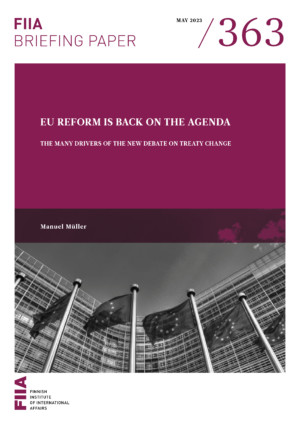Institutional reform is back on the European Union’s agenda, with the European Parliament, the Commission and large member states like Germany and France all supporting changes to the way the EU operates.
While opening the EU treaties is not without political risk and there is still no consensus on doing so among member states, this momentum for reform is unlikely to wane in the near future.
There are several reasons for the new reform drive. In particular, reforms are intended to strengthen the EU’s democratic credibility, to prevent institutional erosion in a time of permanent crisis, to make the EU more resilient to blockades by individual governments, and to lay the groundwork for the accession of new member states.
While some of the proposed changes could be achieved without treaty change, the number and variety of issues at stake entails the risk of getting bogged down in parallel debates and missing opportunities for package deals. The most efficient way to deal with the EU’s reform needs would therefore be the launch of a treaty convention.


